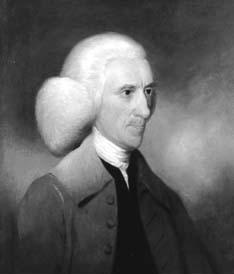Alexander Wilson (astronomer)
Scottish astronomer and meteorologist
Alexander Wilson (1714 – 1786) was a prominent Scottish astronomer and meteorologist, known for his pioneering work in the study of sunspots and the solar atmosphere. He was also a founding figure in the establishment of the University of Glasgow's observatory.
Early Life and Education[edit | edit source]
Alexander Wilson was born in St. Andrews, Scotland, in 1714. He was educated at the University of St Andrews, where he developed an interest in mathematics and the natural sciences. His early education laid the foundation for his later contributions to astronomy and meteorology.
Career[edit | edit source]
Wilson initially worked as a typefounder in St. Andrews and later in Glasgow. His interest in astronomy led him to collaborate with other scientists of his time, including Joseph Black, a renowned chemist. Wilson's work in typefounding was innovative, but his passion for astronomy eventually took precedence.
Contributions to Astronomy[edit | edit source]
Wilson is best known for his observations of sunspots. In 1769, he made a significant discovery regarding the solar atmosphere. He observed that the sunspots appeared to be depressions on the surface of the Sun, a phenomenon now known as the "Wilson Effect." This observation provided early evidence that the Sun was not a solid body, but rather had a gaseous atmosphere.
Wilson's work on sunspots was published in the "Philosophical Transactions of the Royal Society" and was influential in advancing the understanding of the solar system. His observations were among the first to suggest that the Sun had a complex and dynamic atmosphere.
Meteorological Studies[edit | edit source]
In addition to his work in astronomy, Wilson made significant contributions to meteorology. He was involved in early studies of weather patterns and climate, and he was one of the first to propose the use of balloons for meteorological observations. His innovative ideas laid the groundwork for future developments in the field of meteorology.
University of Glasgow Observatory[edit | edit source]
Wilson played a crucial role in the establishment of the University of Glasgow's observatory. His efforts in securing funding and resources were instrumental in creating a facility that would become a center for astronomical research in Scotland. The observatory allowed for more detailed and systematic observations of celestial phenomena, contributing to the advancement of astronomy in the region.
Legacy[edit | edit source]
Alexander Wilson's contributions to astronomy and meteorology have had a lasting impact. His observations of sunspots and his innovative ideas in meteorology paved the way for future research in these fields. The "Wilson Effect" remains a fundamental concept in the study of the solar atmosphere.
Related Pages[edit | edit source]
Search WikiMD
Ad.Tired of being Overweight? Try W8MD's physician weight loss program.
Semaglutide (Ozempic / Wegovy and Tirzepatide (Mounjaro / Zepbound) available.
Advertise on WikiMD
|
WikiMD's Wellness Encyclopedia |
| Let Food Be Thy Medicine Medicine Thy Food - Hippocrates |
Translate this page: - East Asian
中文,
日本,
한국어,
South Asian
हिन्दी,
தமிழ்,
తెలుగు,
Urdu,
ಕನ್ನಡ,
Southeast Asian
Indonesian,
Vietnamese,
Thai,
မြန်မာဘာသာ,
বাংলা
European
español,
Deutsch,
français,
Greek,
português do Brasil,
polski,
română,
русский,
Nederlands,
norsk,
svenska,
suomi,
Italian
Middle Eastern & African
عربى,
Turkish,
Persian,
Hebrew,
Afrikaans,
isiZulu,
Kiswahili,
Other
Bulgarian,
Hungarian,
Czech,
Swedish,
മലയാളം,
मराठी,
ਪੰਜਾਬੀ,
ગુજરાતી,
Portuguese,
Ukrainian
Medical Disclaimer: WikiMD is not a substitute for professional medical advice. The information on WikiMD is provided as an information resource only, may be incorrect, outdated or misleading, and is not to be used or relied on for any diagnostic or treatment purposes. Please consult your health care provider before making any healthcare decisions or for guidance about a specific medical condition. WikiMD expressly disclaims responsibility, and shall have no liability, for any damages, loss, injury, or liability whatsoever suffered as a result of your reliance on the information contained in this site. By visiting this site you agree to the foregoing terms and conditions, which may from time to time be changed or supplemented by WikiMD. If you do not agree to the foregoing terms and conditions, you should not enter or use this site. See full disclaimer.
Credits:Most images are courtesy of Wikimedia commons, and templates, categories Wikipedia, licensed under CC BY SA or similar.
Contributors: Prab R. Tumpati, MD

